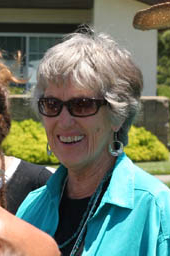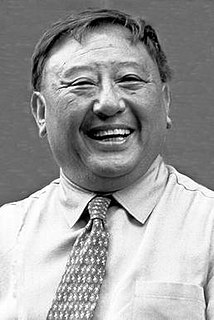A Quote by Joanna Macy
Compassion literally means to feel with, to suffer with. Everyone is capable of compassion, and yet everyone tends to avoid it because it's uncomfortable. And the avoidance produces psychic numbing - resistance to experiencing our pain for the world and other beings.
Related Quotes
The essence of love and compassion is understanding, the ability to recognize the physical, material, and psychological suffering of others, to put ourselves "inside the skin" of the other. We "go inside" their body, feelings, and mental formations, and witness for ourselves their suffering. Shallow observation as an outsider is not enough to see their suffering. We must become one with the subject of our observation. When we are in contact with another's suffering, a feeling of compassion is born in us. Compassion means, literally, "to suffer with."
To the extent that our experience of suffering reminds us of what everyone else also endures, it serves as a powerful inspiration to practice compassion and avoid causing others pain. And to the extent that suffering awakens our empathy and causes us to connect with others, it serves as the basis of compassion and love.
Compassion arises naturally as the quivering of the heart in the face of pain, ours and another's. True compassion is not limited by the separateness of pity, nor by the fear of being overwhelmed. When we come to rest in the great heart of compassion, we discover a capacity to bear witness to, suffer with, and hold dear with our own vulnerable heart the sorrows and beauties of the world.
When your fear touches someone's pain it becomes pity;
when your love touches someone's pain, it becomes
compassion. To train in compassion, then, is to know
all beings are the same and suffer in similar ways,
to honor all those who suffer, and to know you are
neither separate from nor superior to anyone.
In contrast, compassion manifests in us as the offering of kindness rather than withdrawal. Because compassion is a state of mind that is itself open, abundant and inclusive, it allows us to meet pain more directly. With direct seeing, we know that we are not alone in our suffering and that no one need feel alone when in pain. Seeing our oneness is the beginning of compassion, and it allows us to reach beyond aversion and separation.
Compassion is the basis of all truthful relationship: it means being present with love-for ourselves and for all life, including animals, fish, birds, and trees. Compassion is bringing our deepest truth into our actions, no matter how much the world seems to resist, because that is ultimately what we have to give this world and one another.
Compassion may be called the fundamental of all good art because it alone can tell you what other beings feel and experience. Only compassion severs the bonds of your personal limitations, and gives you deep access into the inner life of the character you study, without which you cannot properly prepare it for the stage
Witness the American ideal: the Self-Made Man. But there is no such person. If we can stand on our own two feet, it is because others have raised us up. If, as adults, we can lay claim to competence and compassion, it only means that other human beings have been willing and enabled to commit their competence and compassion to us--through infancy, childhood, and adolescence, right up to this very moment.
We have compassion because of the incredible pain and suffering which we as unenlightened beings cause to ourselves and all others through our ignorance. This is why we're trying to get out. This is why the bodhisattva has meaning. Because we're saying, no we won't get out, we won't escape until we've helped all other beings to escape, but most other beings don't even want to escape. They don't even know that there is an escape, and it's hard, so it's going to take an awfully long time.
Compassion asks us to go where it hurts, to enter into the places of pain, to share in brokenness, fear, confusion, and anguish. Compassion challenges us to cry out with those in misery, to mourn with those who are lonely, to weep with those in tears. Compassion requires us to be weak with the weak, vulnerable with the vulnerable, and powerless with the powerless. Compassion means full immersion in the condition of being human.
































